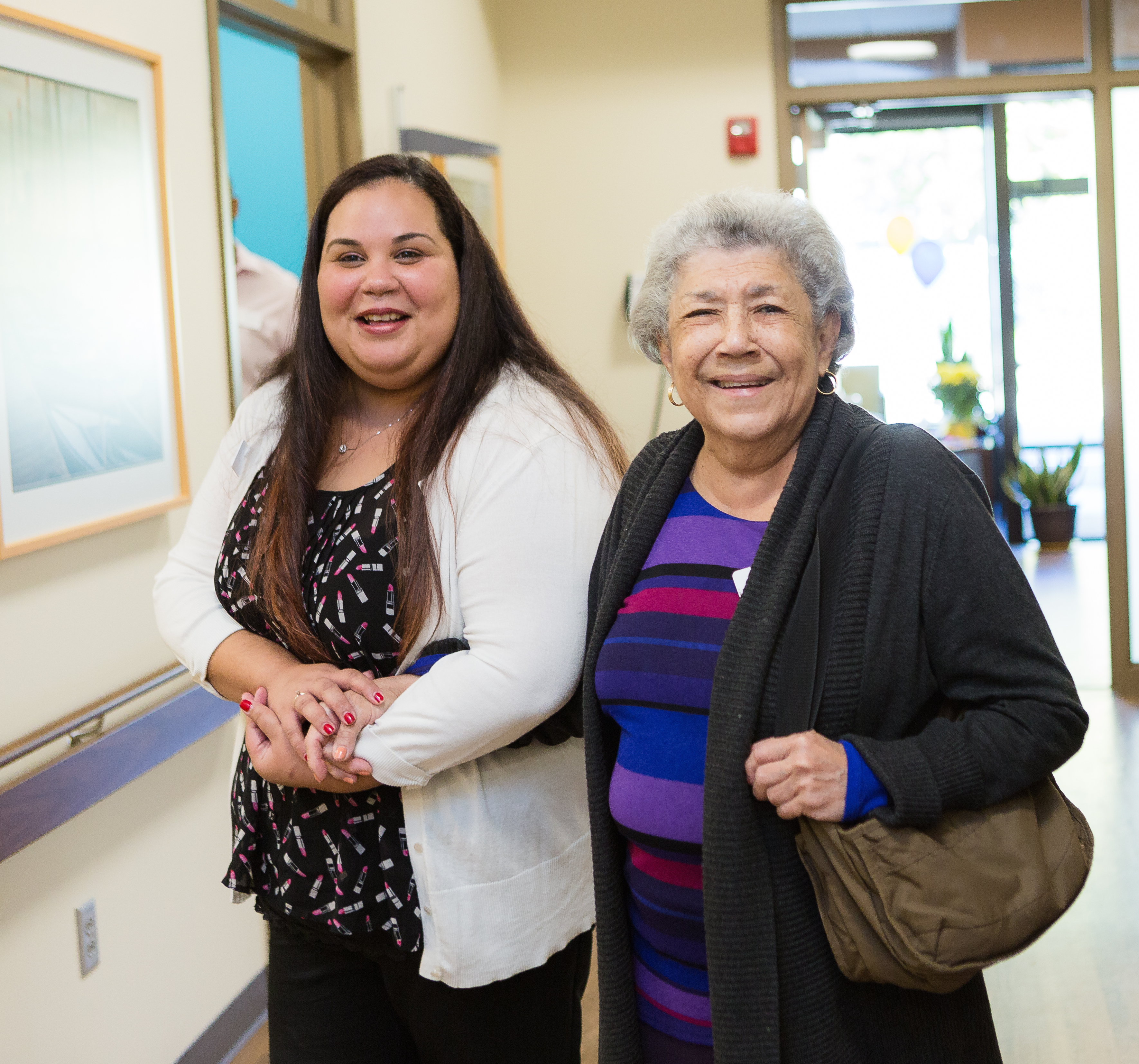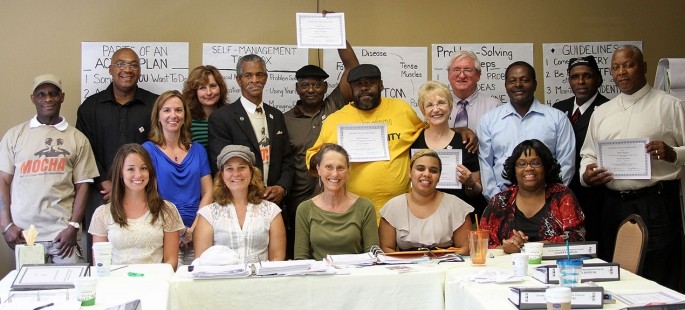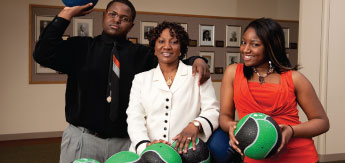By Holli Childs, BACH Intern
 “Health Coach and Patient.” Iora Primary Care health coach Brendalys Rosario takes senior Marina Haley on a tour of the new Iora practice in Hyde Park, Mass.
“Health Coach and Patient.” Iora Primary Care health coach Brendalys Rosario takes senior Marina Haley on a tour of the new Iora practice in Hyde Park, Mass.
 “Public Health Community Health Trainers.” Public health educators at UMass Amherst train community health workers to establish health, wellness, and prevention programs and to prevent chronic diseases such as diabetes.
“Public Health Community Health Trainers.” Public health educators at UMass Amherst train community health workers to establish health, wellness, and prevention programs and to prevent chronic diseases such as diabetes.
If you look at a map of Boston that identifies the neighborhoods by their health indicators, you will see significant inequities in health outcomes. These inequities are the result of many things, but a major factor, that health care providers cannot control, is the environment in which people live. For years, the field of public health has been working to find the best solution to this problem. One method that has proven successful is utilizing community health workers (CHWs). In Massachusetts, a lot of work has been done to prepare to effectively certify CHWs; however, due to a regulation freeze issued by Governor Baker, certification has yet to be implemented. This “freeze” means that no new regulations can be put in place until all old regulations have been evaluated.
CHWs act as a bridge between health services and residents, in the individuals’ own homes and environments. The website explorehealthcareers.org describes CHWs as “front line public health workers who have a close understanding of the community they serve.” This definition highlights the most important quality of a CHW – understanding the community they serve. We know that this quality, combined with effective use of CHWs in a health system, can improve health outcomes. In an article published by the World Health Organization, they indicate that ample evidence exists to confirm that “CHWs can undertake actions that lead to improved health outcomes (Community Health Workers: What do we Know About Them?).” They do this by addressing environmental concerns and helping patients live a lifestyle conducive to improving health. A story, related by Dr. Rushika Fernandopulle of Iora Health, and reported by The Commonwealth Fund, illustrates this principle:
“We had a Medicare patient in Seattle. She had moved from California after her husband died to live with her daughter. The problem was the daughter lived in the suburbs and the mom couldn’t get around and was getting isolated. Her diabetes and hypertension were getting worse. The health coach realized that the problem wasn’t that she needed more medicine; she needed to stop being isolated. So the health coach essentially taught her to use the bus, first by riding to the clinic together. The patient figured out how to do transfers and ride the bus back. Now this has nothing to do with health care and yet it has everything to do with health care. Now she can come to us, she can visit friends. And by the way her diabetes and blood pressure are in great control. We didn’t touch her medicine (Transforming Care: Reporting on Health System Improvement).”
This story and a plethora of additional research, emphasize the value of CHWs in improving health outcomes. The Massachusetts Association of Community Health Workers, (MACHW) along with BACH and the Department of Public Health (DPH), have been working to improve the sustainability of CHWs in MA. MACHW has two major priorities they will be focusing on in 2016. First, they will work with MassHealth as they transition to Accountable Care Organizations (ACOs), to educate them on how to maximize the role of CHWs in the health system. Second, they will work to engage CHWs through five regional chapters that will identify and prioritize the issues specific to each region and incorporate professional development for CHWs. Additionally, MACHW and DPH have been working to create and implement a certification program. This program will insure that all CHWs are operating on the same level of competency. Once the regulation freeze has been lifted, they plan to implement this program. With all of the progress being made toward better utilization of CHWs, let’s hope that Boston’s neighborhood map of health indicators will look different by the end of 2016 than it does now.
“Health Coach and Patient” photo courtesy of The Commonwealth Fund. “Public Health Community Health Trainers” photo courtesy of UMASS Amherst Research NEXT.

